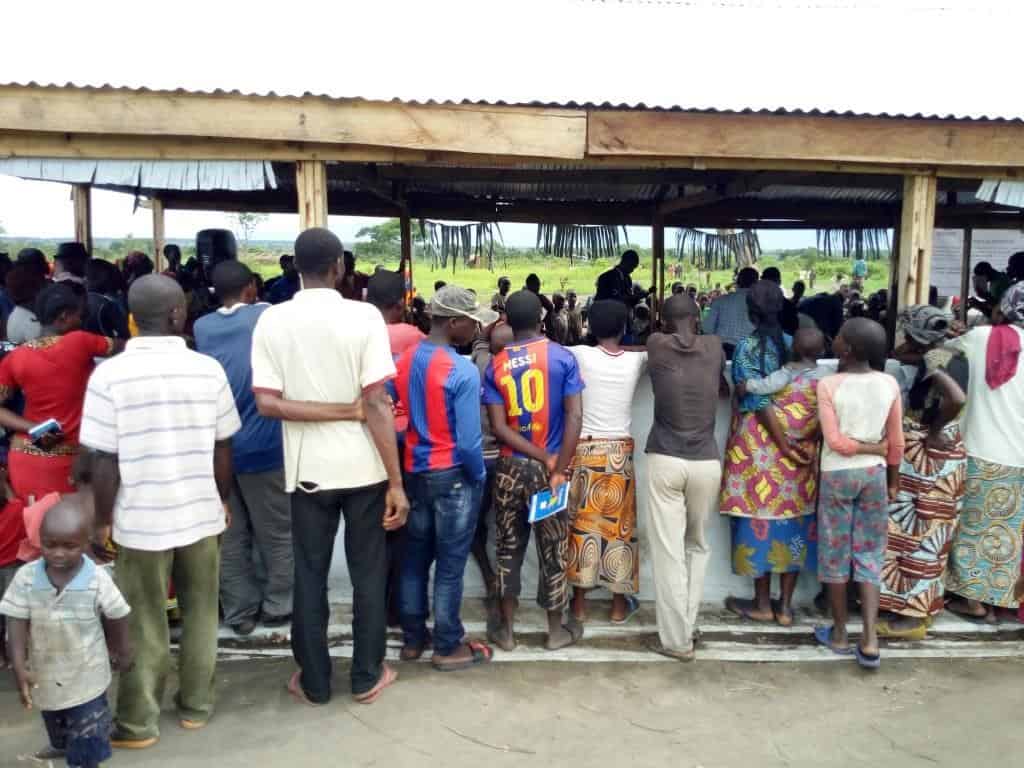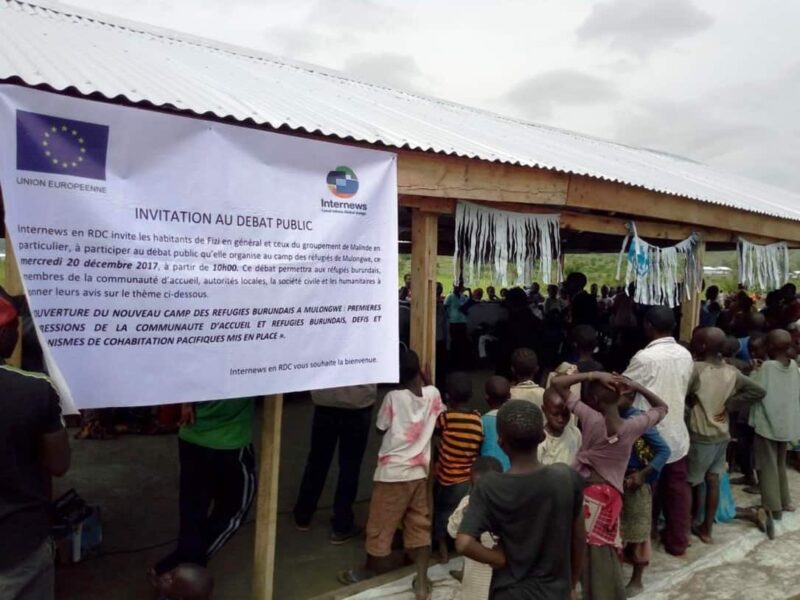Between 2015 and 2017, close to 42,200 people fleeing political violence in Burundi settled in refugee camps, communities, and urban areas in the South Kivu province of the Democratic Republic of Congo (DRC).
The sudden influx of refugees into this region led to conflicts with the host communities around issues such as land, humanitarian aid, and sexual and gender-based violence.There were also concerns about ongoing fighting between Burundian armed groups and the Congolese Armed Forces.
The Burundian refugee situation is considered by the UNHCR to be one of the least-funded refugee crises in the world.
In 2017, Internews launched a project with the goal of improving the level of trust between host and refugee communities through dialogue and information sharing.
After assessing the information needs of each community, Internews trained 21 local journalists and refugee correspondents on conflict reporting and gender-sensitive journalism to produce an audio information bulletin called Ongea yaga, (“Dialogue please” in Swahili and Kirundi) focusing on humanitarian and social cohesion issues.
About 500 bulletins in Swahili and Kirundi were broadcast through a network of 11 community radio stations. In partnership with AFEM (The Association of Women in Media of South Kivu) and SVH (Solidarity of Volunteers for Humanity), dialogue and information were also channelled through public debates, regional and gender-focused magazines, and a community mediation platform.

“Public debates and the Ongea yaga bulletin helped to improve our relationship with members of the host community,” said a refugee leader from the Lusenda refugee camp. “Now the communities are collaborating, our children started to attend school, and we are moving more freely and without fear. The situation was not like that in 2017.”
Toward the end of the project, Internews guided the local journalists and refugee correspondents in producing and editing the bulletin independently without technical and financial support. Ongea yaga is now officially registered as an association and, since the end of the project, 40 bulletins have been broadcast by nine radio partners. The bulletin is also disseminated through social media and the Ongea website.
“The bulletin and the public debates helped to reduce rumours and stereotypes between the communities and improve the level of trust,” said a host community leader. “Ongea is a bridge between the two communities.”
An external evaluation of the project found that 75% of people surveyed stated that the level of trust has significantly improved and that the number of security incidents significantly declined. 85% declared that they have access to the information they need. At the beginning of the project, only 18% of the respondents made a similar statement. Most of the beneficiaries acknowledged that the project contributed to peaceful cohabitation and the reduction of rumours and security incidents.
The project Young Burundian Refugees for Communication, Dialogue and Peaceful Cohabitation was funded by the European Commission.
Download Rapport – Evaluation finale (Final report in French)
(Banner photo: community members gather to listen to a public debate. Credit: Internews)
